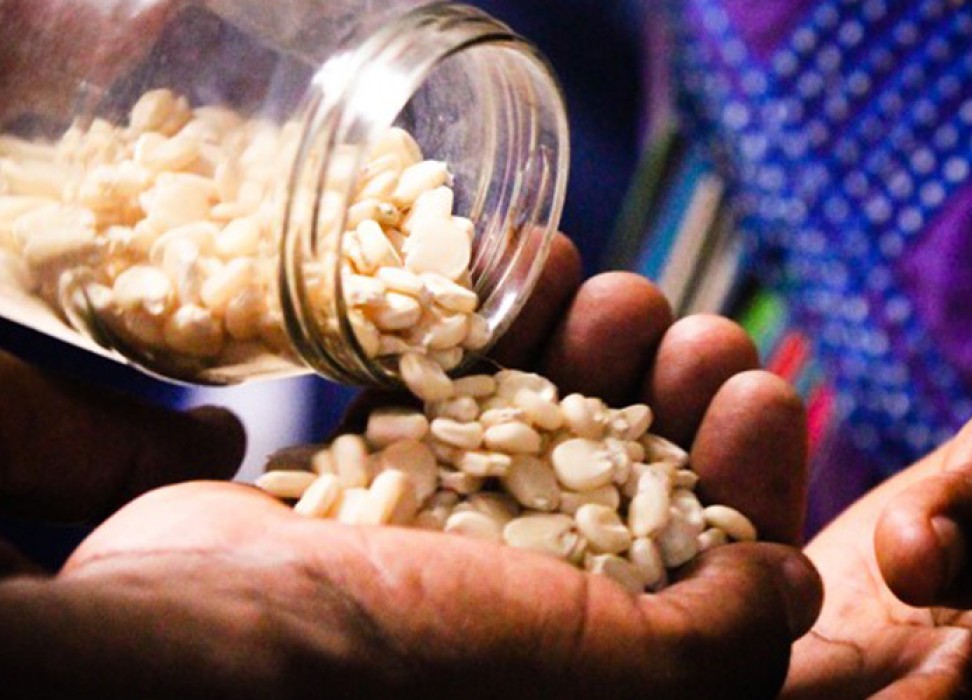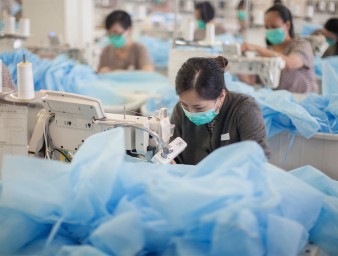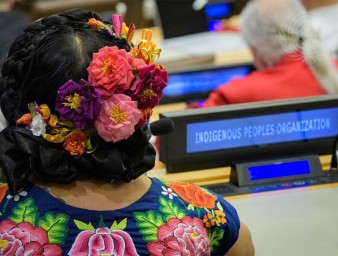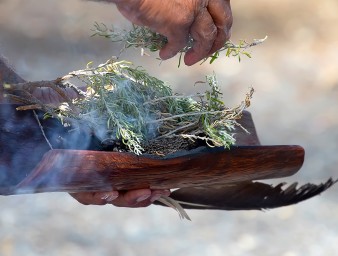Seeds: central to people’s food systems, cultures and human rights
28 March 2022

“Because seeds are so central to people’s cultures and food systems, to control seeds is to control life,” said Michael Fakhri, Special Rapporteur on the right to food, in his latest report to the Human Right Council.
The expert further pointed out that, after ten thousand years of a domestic relationship with plants during which humankind has experimented with and adapted to its environment, peasants and farmers have put in place two different seed systems to ensure survival: farmers’ seed systems and commodity seed systems.
Two seeds systems
Farmers’ seed systems are the foundation of all food systems, Fakhri said. They support the renewal of biodiversity, allow for the free distribution of seeds and knowledge among peoples, and make food systems more resilient against climate change, pests and pathogens.
Farmers’ seeds systems fulfil “people’s right to life and right to food, and allows farmers to freely save, use, exchange and sell seeds. They ensure that people can adequately feed themselves directly from productive land,” Fakhri said. “Farmers’ seed systems allow farmers to grow food in a way that responds and adapts to change, making communities stronger and food systems more resilient.”
Commodity seed systems, on the other hand, are dedicated to the reproduction of homogeneous varieties, which depend on chemical farm inputs, Fakhri said.
“Their main purpose is to make profits and produce as much food as possible,” he added.
These seeds system are dominated by four agrochemical companies, the ‘Big Four’. They control 60 per cent of the global seeds market and 75 per cent of the pesticides market, leading to a strangle-hold on seed varieties, distribution and price, Fakhri said.
“This market concentration means that a small number of companies will unfairly control the price and distribution of seeds,” the expert said. “The less biodiversity we have in our food systems, the more farms are vulnerable to climate change shocks. The increasing use of pesticides also harms the health and safety of agricultural workers, farmers and communities.”
Two different contradictory legal systems
Fakhri also pointed out that each type of seed system is associated with a different legal system. At the heart of farmers’ seed systems are farmers’ rights, which are supported by the Treaty on Plant Genetic Resources for Food and Agriculture (Art. 9), the UN Declaration on the Rights of Indigenous Peoples (Art. 31), and the UN Declaration on the Rights of Peasants and Other People Working in Rural Areas (Art. 19).
Farmers’ rights have been clearly recognized and reaffirmed as inalienable human rights – all indigenous peoples and peasants have the right to maintain, control, protect and develop their own seeds and traditional knowledge.
However, Fakhri highlighted that, since the Industrial Revolution of the late 19th century, the world’s food systems have become increasingly industrialized, making farmers dependent on the expensive farm inputs they acquire from agrochemical companies.
Commodity seed systems are centred around the reproduction of homogenous varieties of seeds, which heavily depend on chemical farm inputs through contract law and property framework, the expert said. In 1991, European countries started promoting their property framework with the support of the International Convention for the Protection of New Varieties of Plants and the World Trade Organization’s Trade-Related Aspects of Intellectual Property Rights (TRIPS) agreement that came into effect three years later.
The challenge for States that protect farmers’ right to maintain, control, protect and develop their own seeds and traditional agricultural knowledge, Fakhri stressed, is that their obligations under the current international and national legal landscapes, coupled with two types of seed systems, create potentially contradictory obligations and risks of human rights violations against peasants and indigenous communities.
“Unfortunately, more and more countries, especially in the continent of Africa, are feeling pressured to either enact laws that allow seeds to be patented, sign the International Convention for the Protection of New Varieties of Plants, or reform their national laws in a way that complies with the Convention,” he said. “This pressure needs to stop.”
In his report, the expert proposed a framework for the advancement of farmers’, indigenous peoples’ and workers’ rights using the International Treaty on Plant Genetic Resources for Food and Agriculture and human rights law. This would include: the recognition of farmers’ and indigenous peoples’ right to seeds; the protection of farmers’ and indigenous peoples’ traditional knowledge; the right to save, use, exchange and sell farm-saved seeds; the right to participate equitably in benefit-sharing; and the right to participate in decision-making.
“If you protect your seed systems by fully realizing farmers’ and workers’ rights, by framing everything in terms of the right to life, you will bring blessings to your land during these violent times,” Fakhri said.



